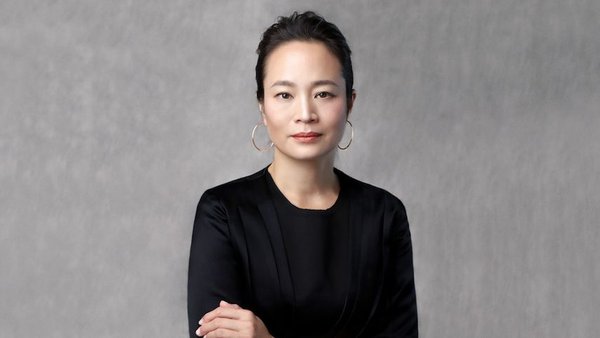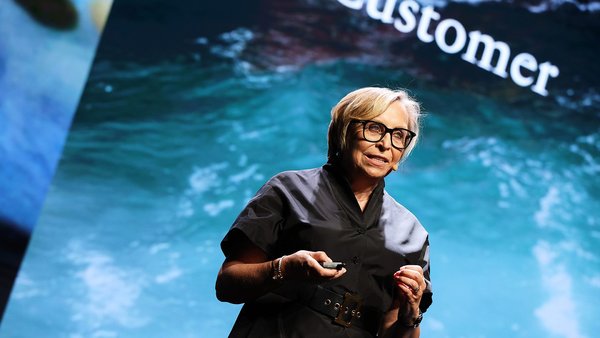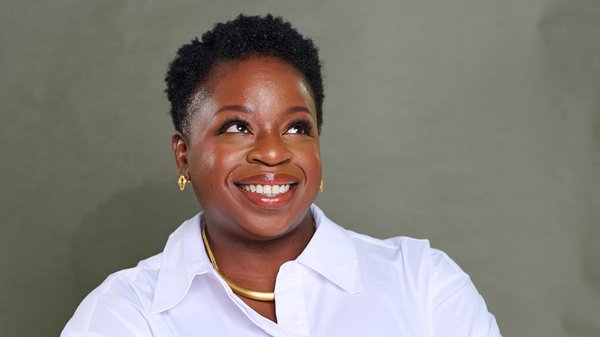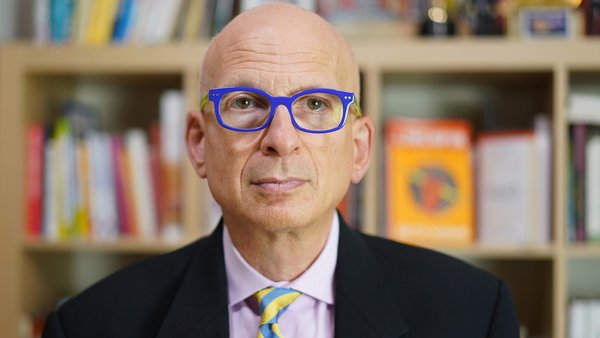‘The fundamentals still hold true’: Insights on advertising from 12 years of Google’s Firestarters interviews /
Consultant Neil Perkin tells Contagious what he's learned about advertising, creativity and optimism from interviewing interesting and interested people from the marketing and innovation sectors
James Swift
/
Neil Perkin has been interviewing some of the most interesting and accomplished people working in the advertising, marketing and innovation sectors for Google Firestarters since 2012.
For almost a decade, Perkin, founder of consultancy Only Dead Fish, conducted these interviews at live events hosted by Google, before changing the format to video-call interviews during the pandemic, and then more recently, publishing his interviews as podcasts.
In his role as curator of Google Firestarters, Perkin has been afforded the opportunity to interrogate the people charged with navigating the industry’s biggest challenges and opportunities.
We thought it would be a useful idea to interview Perkin about his interviews, asking him for some of the most memorable insights shared by his subjects over the years.
Before our interview took place, Perkin helped us identify four themes — growth, learning, customer focus and the future — that had suffused his interviews. Over a Zoom call last week, we discussed those themes. This is a transcript of that conversation, edited for clarity and length.
How have your interviewees talked about growth? What has been the advice that comes up again and again or the outlier views that were particularly memorable?
I think one of the common themes has been about the challenge of driving growth in low-growth environments. One interesting angle was [branding consultant] Helen Edwards’. She was talking a lot about looking for opportunities for growth not in the mainstream but at the margins. So, marginal ideas, marginal thinking — looking beyond the traditional places for opportunities to tap into fast-growing ideas, concepts, or shifts in consumer behaviour. There’s not enough attention on those kinds of areas and spaces.
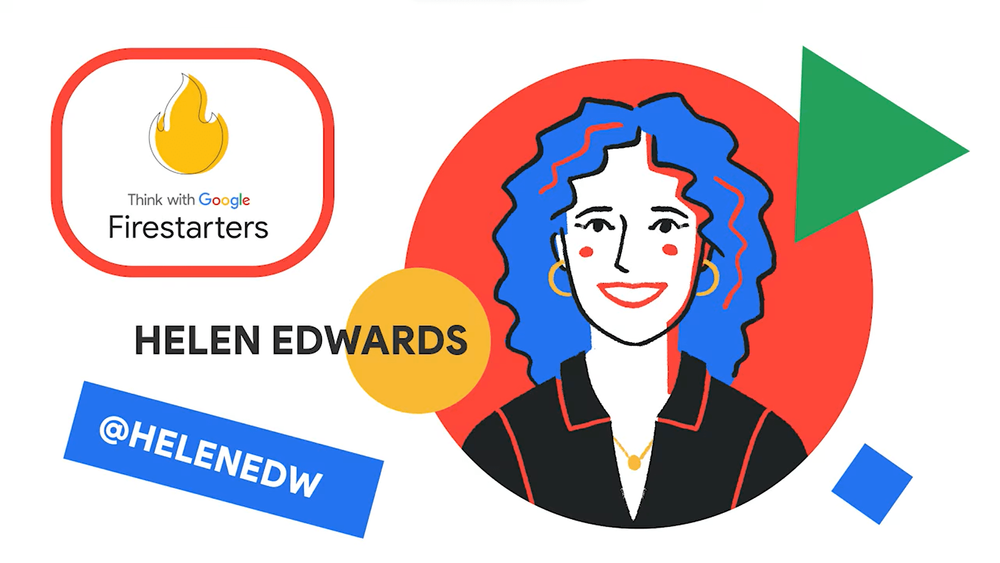
What were some of the marginal behaviours or ideas that she talked about?
Eating insect protein was one of them. She also talked about the focus on sleep and how people are tracking their sleep patterns. So you’ve got behaviours that are starting to emerge but still relatively low in penetration and have the potential to grow. If you see something early, you can get into it and capitalise on it.
Any other themes that emerged around growth?
The other big theme was probably about sustainability in the context of growth. Leo Rayman, who runs Eden Lab, talked a lot about what he called ‘green growth’ — how growth can happen in an environmentally friendly way.
He was talking about how marketing and science can come together to help drive green growth, if you’re able to align incentives and objectives, so that you’re driving growth but in a sustainable way.
The other thing that Leo was talking about was telling stories and how marketing is very good at painting a compelling vision of the future, which I really liked. If you can bring the best of marketing to the best climate science, you’ve got something very powerful, and that was his thinking.
The only other [theme] to maybe flag here has been the idea of both incremental and disruptive growth. Agathe Guerrier [now CEO of 180 US] talked quite a lot about this, and how creativity can unlock disruptive growth as well as incremental growth. So, you’re not always focused on optimisation and doing what you did before but marginally better; you’re also thinking about how to use creativity to take a leap forward.
Your interviews can be quite personal, in terms of getting to the root of how people think and their own development. What are some of the most useful insights about learning?
Learning has come up as a theme a lot in different contexts. Kevin Kelly [co-founder of Wired magazine] for instance talked about lifelong learning. But one of the themes which has come up was about creating the environment for learning. How can you create a working environment which has got continuous learning at its centre?
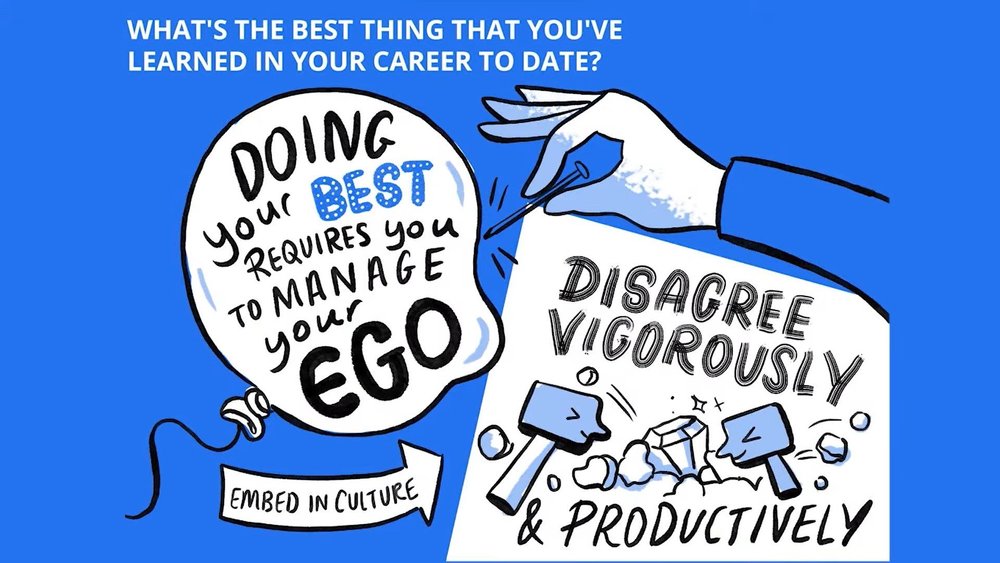
In [writer and former strategist] Ian Leslie’s episode, he talks a lot about the power of constructive or healthy disagreement, which is a brilliant way of thinking about what behaviours really help learning.
There were a couple of quotes from him, which I really liked. One was about how ‘doing our best work requires managing our ego’. The other was about how ‘thinking is a collaborative activity’.
I really liked that, and you can tie that into [author and consultant] Alison Coward’s episode. She talked a lot about workshop culture as a way to drive high-performing teams. You know the kind of environment that you create within a workshop? Why can’t you have that every day? So, the importance of things like psychological safety and creating an environment which is energetic and people are willing to contribute ideas, so you’re firing off each other really nicely.
[Creativity and brand expert] Adam Morgan is a brilliant one to highlight on this one, too. He talked a lot about creativity within constraints, and the importance of asking good questions. There was a wonderful example he gave, which was about Audi and the racing car that they built when they entered Le Mans. Audi were up against some pretty competitive teams that have been in it for a long time, like Porsche and so on. But the question that [Audi’s chief engineer] set the team was not, ‘How can we build a faster car?’ It was, ‘How can we win Le Mans if our car can go no faster than anybody else’s?’ And it was such an interesting question, and where that led them was to diesel technology. For the first time, diesel technology was brought into Le Mans racing, and that enabled Audi to make fewer pit stops. And they won Le Mans for three years in a row.
Michael Lee’s episode was brilliant on modern strategists. He talked a lot about the idea of a T-shaped planner. The range of skills and knowledge that a planner needs to have now is arguably much broader than it’s ever been.
Neil Perkin, Only Dead Fish
It’s not surprising that customer focus has been a common theme, given that the customer is at the heart of everything every brand does, if the press releases are to be believed. Have you come across any novel insights about how to actually achieve and maintain the customer centricity every brand craves?
There’s a few interesting angles to this. One came from Claire Hennah, from Unilever. She was brilliant on what she called ‘consumer connection’. This is the idea of not just being where your audiences are, but being where they will be. So, the importance of understanding the kind of spaces that they’re moving into, how they’re evolving their behaviours, and then experimenting in those areas and understanding them. Gaming was one area that she highlighted as an example.
To build on that, I would probably pick out Matt Locke. [He] is the founder of Storythings, a content marketing agency. He had five rules for content marketing in an era when content discovery and consumption is changing a lot. One of them was about working back from the consumer. This is something which is obviously quite well known in product fields but he was talking about it in the context of content. To give an example, he was talking about the need to understand not just the media that your audience might be consuming but how you’re going to play a role in their lives — when you’re able to speak to them in a moment which really does make sense for them, not just for you.
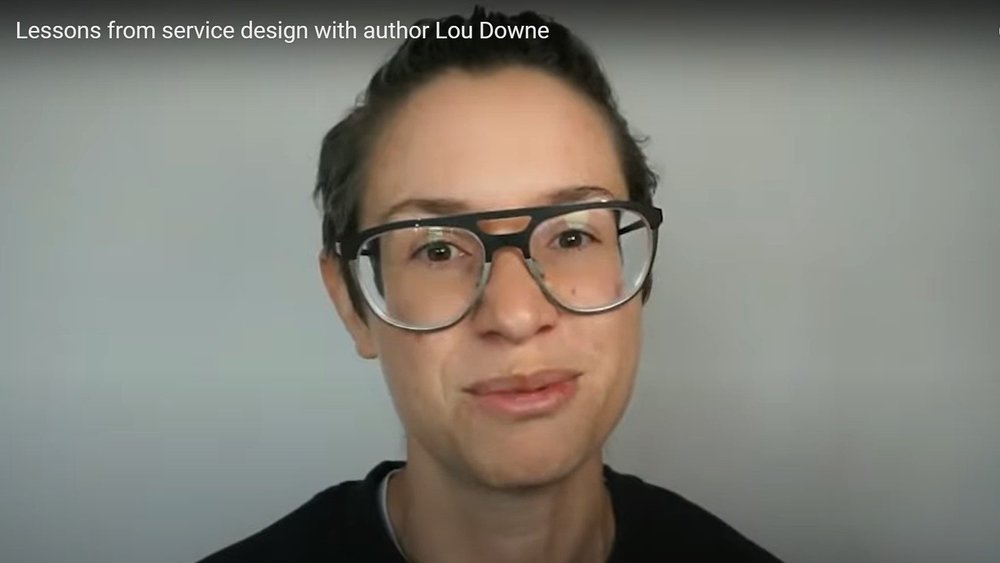
The other one I’d pick out is Lou Downe — our most-viewed episode — who runs The School of Good Services and focuses on principles of good service design. She’s written a book called Good Services, and she has 15 principles of good service design. The episode was themed on the learnings that you can get from service design thinking into planning and strategy. She talked about how easy it is for organisations to design things in a way that works for the organisation but not for the consumer. I think it’s sometimes called Conway’s Law. But it’s the idea that, sometimes you show your organisational silos in the services that you create, or the way in which you interact with customers. It’s really important to flip that, so you’re actually thinking about, ‘What does this look like from the consumer’s point of view?’
Based on your interviews, do you think people within the industry have a good idea (or at least a consensus) about what the future holds for marketing and advertising?
Generally, I think the guests have been pretty optimistic about the future of the industry. But I think there was also a recognition that the basics are still as valid as they’ve ever been. The technology’s changing, and how we’re delivering experiences and engaging consumers is changing, but the fundamentals still hold true. Dom Boyd [MD at Kantar] did a masterclass on ad effectiveness and talked a lot about how often we miss some of the basics of effectiveness, tracking progress, aligning around outcomes and so on.
Kevin Kelly, co-founder of Wired, was also excellent on technology futures. He talked a lot about technology optimism, which I thought was lovely. He says optimism is less of a temperament and more of a choice. It’s almost a skill, he said. You can choose to be optimistic about technology or not to be optimistic, and it’s far better to be optimistic about it because it means that you can see new possibilities.
He also talked about how great inventions were typically created by optimists, and about being able to see the future and believe that it’s possible. You need imagination to make that happen. And in order to do that, well, you need to let go of embedded assumptions that you might have about how things work.
You used to ask your interviewees, ‘what was the one question you wish that I had asked but didn’t, and how would you answer it?’ So… what was the one question you wish you had asked but didn’t, and how would you answer it?
Maybe you could have asked me which, out of all of those themes, is the one that most resonates with me? And the answer would be, the theme of lifelong learning. Because the one thing which I think doing Fiirestarters for so long has enabled me to do is to pick out people that I just think are really interesting, or interested, and tap into their thinking. I just think it’s an enormous privilege.
Want more of the same? /
We don’t just write about best-in-class campaigns, interviews and trends. Our Members also receive access to briefings, online training, webinars, live events and much more.
